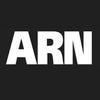
Now there's a Facebook Chat app for the enterprise. The social network has quietly published a standalone Workplace Chat app, a year after it launched its browser-based Workplace enterprise networking service.
The app, available for Windows and macOS, is still in beta testing, but anyone can download it from Facebook's Help Center.
Initially known as Facebook at Work, Workplace by Facebook uses a similar interface to the company's consumer social network, but competes for the corporate collaboration market against services such as Slack.
Workplace comes in two versions, Standard and Premium. The Premium version allows corporations adopting it to use their own identity management service for logins, and to police content according to their own policies rather than Facebook's standard terms and conditions.
Specifically, its use requires the creation of a corporate account, and individual logins using corporate email addresses.
The Workplace Chat app works with Standard and Premium versions of Workplace, and requires a corporate email address to log in.
There's already a chat function in the Workplace web interface, but the standalone app offers additional functions. These include delivery of notifications using the native interface of the OS, voice and video calling, and screen-sharing.
The Mac version (0.2.20) was compiled three weeks ago, and will run on versions of macOS from 10.9 (Mavericks) onwards.
The PC version requires Windows 7 or above and will install and run without administrator privileges.
Facebook says the app will auto-update, so beta testers should automatically be provided with the final version.
The browser-based offering - released to the market in October 2016 - attracted companies such as RBS, Yes Bank, Danone, Telekom Austria Group, Financial Times, Telenor, and Booking.com.
Described by Facebook as “a communications platform that helps organisations collaborate and get more done,” industry analysts believe the social media giant will have to convince business and IT decision-makers that this new offering is different and/or better than Jive, Yammer, Chatter, and so on.
“The world’s workforce is not homogenous,” Ovum research analyst Richard Edwards added. “Every country and every industry presents a different workforce mix.
“Information technology solutions, including electronic communication and collaboration systems, have traditionally targeted the knowledge worker segment and, more recently, service workers through enterprise mobility initiatives.”
As observed by Edwards, manual workers have, for the most part, been left out of the loop because they are not “digitally connected” to the workplace, its processes, and its communication channels.
“However, affordable smartphones, pervasive wireless networks, and powerful cloud services are now able to connect the millions of manual workers employed in agriculture, accommodation and food, transport and storage, wholesale and retail, construction, and manufacturing,” he added.
“Facebook is designed to be used by everyone. Millions of people use Facebook each and every day to stay in touch with family and friends, and the company will no doubt be hoping its new venture will be equally successful.”
In operating as a communications platform that helps organisations collaborate and get more done, Edwards said Workplace is for everyone to use, not just the white collar workers at the company HQ.
“If business leaders can harness the Facebook “secret sauce” to drive up employee engagement, then all are likely to benefit,” he advised.
“Engaged employees are generally more productive, more innovative, and more collaborative; engaged employees typically deliver better customer service, have less time off work, and make fewer mistakes; and engaged employees have a better sense of well-being and contentment.”
(Additional reporting by Peter Sayer of IDG News Services)




